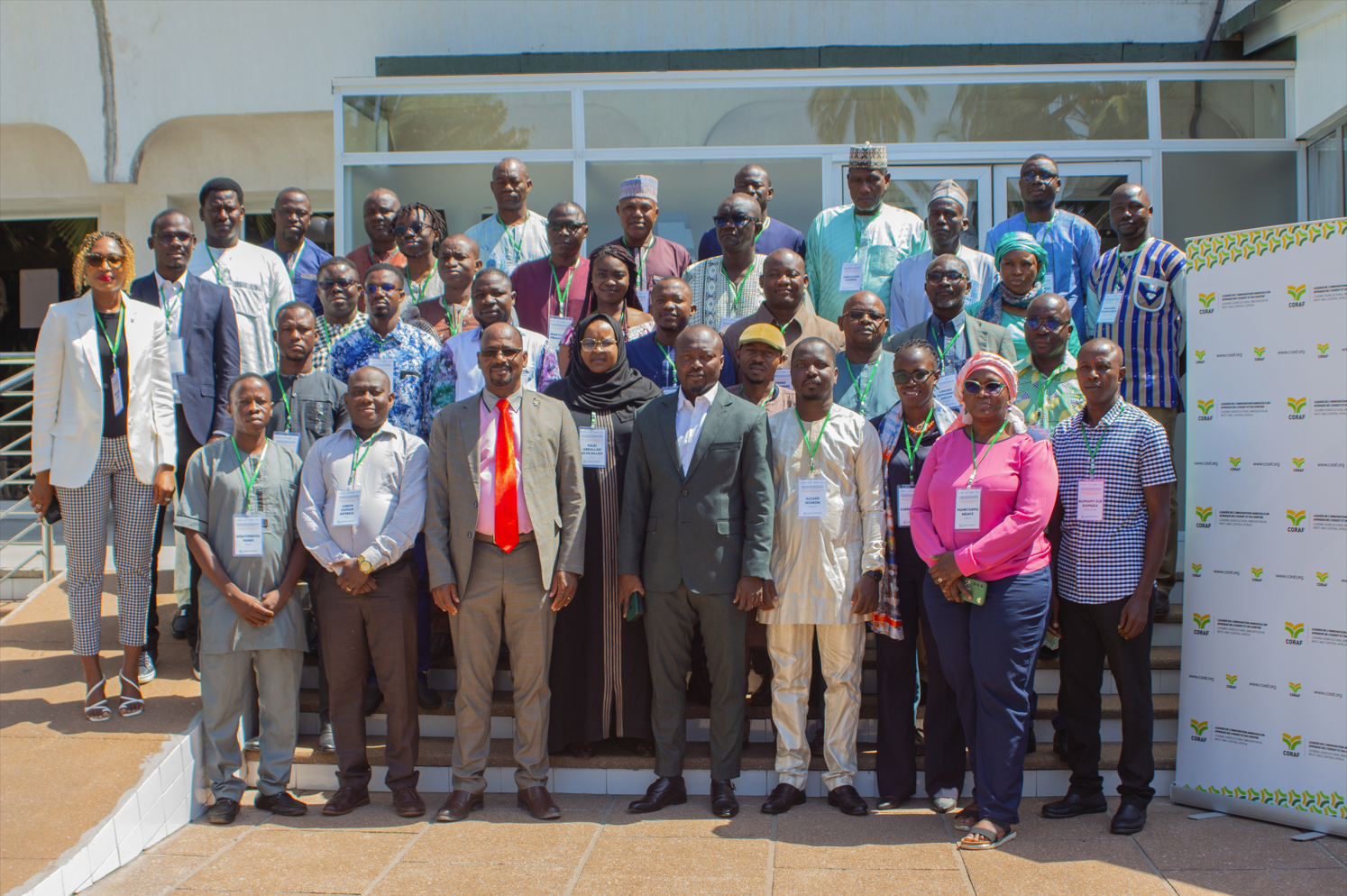News
CORAF is an important organization working to improve food and nutrition security in West Africa. CORAF's recent initiatives are a promising sign of its determination to meet the challenges facing West Africa.
CORAF trains FSRP implementers to assess the climate intelligence of agricultural technologies and innovations

Published on: 15/05/2025
Faced with the climate emergency that is disrupting agricultural systems in West Africa and the Sahel, strengthening the resilience of agricultural sectors is no longer an option, but a strategic necessity. Prolonged drought, flooding, seasonal irregularities, soil degradation, food insecurity... these are all challenges that call for concrete responses, based on proven technologies and adapted to the realities of producers.
With this in mind, CORAF, in collaboration with the International Bioversity Alliance and the International Center for Tropical Agriculture(CIAT), is organizing a regional training workshop on the assessment and prioritization of climate-smart agricultural technologies, to be held in Lomé, Togo, from May 12 to 16, 2025. This initiative is part of the Food Systems Resilience Program(FSRP) and the AICCRA project, with support from the World Bank.
For five days, experts from FSRP/PRSA national implementation units and national research institutes in the eight beneficiary countries (Burkina Faso, Chad, Ghana, Mali, Niger, Senegal and Sierra Leone) are building their skills in using a robust methodology (multi-criteria analyses) to assess the climate intelligence of existing agricultural T&I before proceeding with their extension to agricultural producers.
"This workshop is being organized in response to one of our imperatives in the implementation of the Food System Resilience Program, which has enshrined resilience as its key point of intervention at country level. In this perspective, it is essential that countries, actors and technicians involved in implementation have a clear and shared understanding of the language, tools and requirements that resilience requires", said Dr. Niéyidouba LAMIEN, Program Manager at CORAF.
In concrete terms, the work should enable participants to find out whether the technologies currently being deployed in the project's areas of intervention meet the three pillars of climate-smart agriculture, namely productivity, adaptation and carbon mitigation.
"That's why, throughout this workshop, we're examining technology by technology, drawing on data sheets, publications and other scientific evidence produced by researchers to assess precisely how well each of them meets the three key pillars of climate-smart agriculture," added Dr. Nieyidouba LAMIEN.
The ambition of CORAF and its partners through this regional workshop is to facilitate the appropriate use of technologies and innovations for scaling up climate-smart agriculture (CSA).
According to Dr. Djénéba DEMBELE, a researcher at Mali's Institut d'Économie Rurale (IER), this workshop is an opportunity to exchange knowledge and strengthen collaboration between research structures and units, in order to meet the enormous challenges imposed on the agricultural sector by climate change.
"After the Lomé workshop, which is of capital importance in view of the subject addressed and its content, we will continue to work and maintain the momentum of information sharing and the development of practices and technologies to move the agricultural sector forward", she confided.
Committing to the scaling-up of agricultural technologies and innovations
The training of experts from national FSRP implementation units and researchers from national research institutes in T&I assessment further confirms CORAF's position as a key player in the development and scaling-up of climate-smart agricultural innovations and technologies.
"CORAF is a strategic partner in the implementation of the Accelerating the Impact of CGIAR Climate Research for Africa (AICCRA) program. This partnership aims to ensure the scaling-up, through the CORAF network, of innovations validated and tested in the three AICCRA pilot countries in West Africa. As the umbrella organization for 23 national agricultural research systems in West and Central Africa, CORAF is an essential lever for disseminating these solutions on a large scale ", confided Dr Alcade SEGNON, Scientific Manager of the West Africa cluster of the AICCRA program financed by the World Bank's IDA fund.
Indeed, CORAF has included the scaling-up of proven agricultural technologies as a priority in its 2018-2027 strategic plan. The organization plays a central role in coordinating regional initiatives to facilitate the effective adoption of these innovations for the benefit of producers.
Each year, CORAF sets up a major strategic framework for the exchange, sharing and dissemination of validated agricultural technologies and innovations, responding to the concrete needs of players in the sector in West and Central Africa.
Called the Marché des Innovations et Technologies Agricoles (MITA), this event brings together innovators, researchers, inventors, the private sector and development partners. MITA offers a unique showcase for technologies recently validated by research. The next edition is scheduled to take place in Mali in October 2025.
Other news
View allTowards a strengthening of CORAF's actions in...
A delegation from CORAF, led by its Chairman of the Board, Dr Kalifa TRAORÉ, its Executive Director, Dr Moumini SAVADOGO, and its...
A strong plea for African women entrepreneurs...
Many women in West and Central Africa live in an unfavorable environment, with limited access to information,...
CORAF strengthens its partnerships in Burkina Faso...
As part of its mission to strengthen institutional and technical collaboration, a delegation from CORAF, led by its Director,...
Training today's and tomorrow's researchers:...
When AMABA Akéta Akpadji Rébecca completed her Master's degree in Plant Biology in Togo, she was faced with uncertainties about...